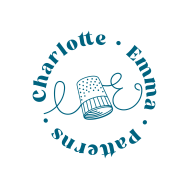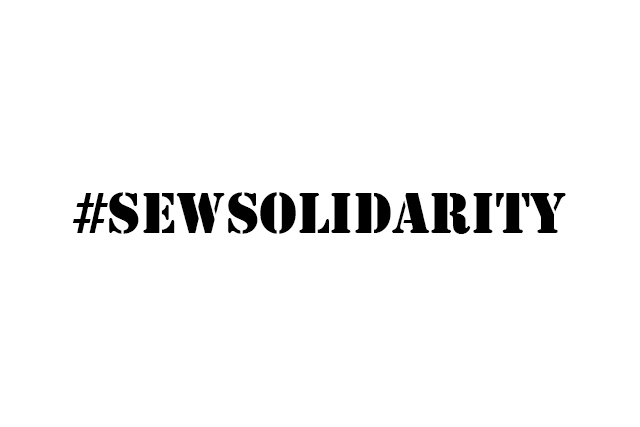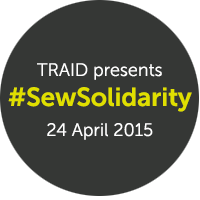I’m teaming up with UK fashion reuse charity TRAID today to promote their #SewSolidarity challenge, and I really hope you’ll get involved.
On April 24th it will be two years since the collapse of the Rana Plaza factory in Bangladesh.
At least 1,133 garment workers were killed, and over 2,500 injured in the collapse. Many of the brands linked to Rana Plaza have failed to contribute at all / sufficiently to the compensation fund set up to support victims and their families, meaning the fund is still $9 million short of the amount required to provide adequate compensation.
TRAID are asking sewists to show their solidarity with garment workers, and keep attention on Rana Plaza and the ongoing fight for adequate compensation, by refashioning a garment, giving it longer life, and showing solidarity with the garment workers who created it.
How to Take Part
- Source a piece of clothing (from your wardrobe, a charity shop, or a friend) that was made in Bangladesh, or by a brand who was having clothing manufactured at Rana Plaza, or by a brand which manufactures in Bangladesh. The Clean Clothes Campaign has detailed information on the brands who were involved with Rana Plaza, including those who have failed to make adequate (or any) contribution to the compensation fund (and so are most in need of a kick in the arse).
- Refashion the clothing, and post your progress and the finished refashion online using the tag #SewSolidarity on, or in the lead up to, the anniversary of the Rana Plaza collapse on April 24 2015.
You may also want to challenge the brand who produced the original clothing item to pay into the Rana Plaza compensation fund / ask them about working conditions and safety in their factories (particularly, if using a clothing item by one of the companies who has, so far, failed to pay adequate compensation).
TRAID’s blog post about the challenge includes a great list of further resources about the progress made to secure compensation for victims of Rana Plaza, and about work being done to improve social and environmental conditions across the textile supply and production chain.
I’m planning to visit my local charity shops this week and get refashioning, how about you?
P.S. Fashion Revolution are also asking people to raise their voice on April 24 and ask #whomademyclothes? I’m planning to take part in both events. Clothing companies sometimes use the claim that consumers don’t care how clothing is produced as an excuse not to improve, so the more we can do to prove they are wrong the better. (Plus TRAID sit on the Fashion Revolution Board, so it’s all interconnected!)
TRAID
If you’re not familiar with TRAID, the charity setting the challenge, their work is very pertinent to sewists, and is focused on reducing the negative impacts of textiles and the fashion industry on the environment and people’s lives.
TRAID do this by selling donated clothing, and garments produced from damaged textiles, and investing the funds in global projects designed ‘to free the textile supply and production chain from the exploitation of people and the environment’, by improving conditions and working practices in the textile industry.
Zoe from ‘So, Zo…’ previously worked for TRAID. This post by Zoe & this interview with Tilly explain more about how TRAID re-use textiles.
TRAID charity shops are currently located only in London, but they have recycling bins across the UK. Check out the locations of these here.
Button
Grab a button to show your support:


